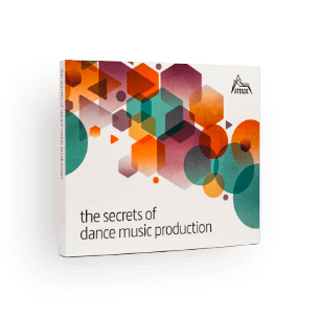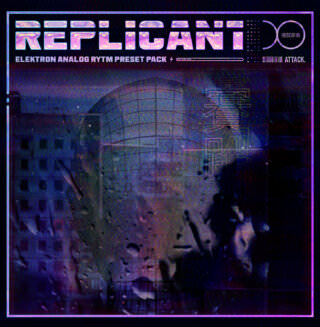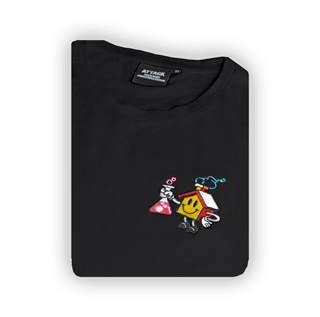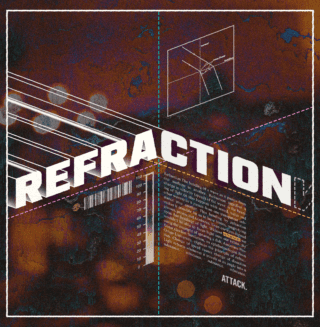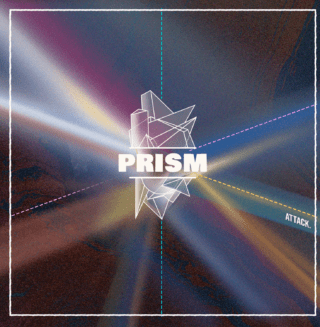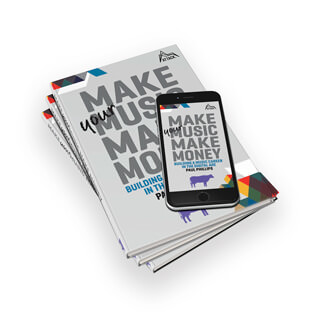Aslice is a software-based service, founded by DVS1, that asks DJs to share their earnings with the artists in their playlist. We talk with the revered producer about how Aslice works.
This year’s International Music Summit was full of impactful ideas. There is a sense across the industry that significant change is accelerating. Similar to the turn of the century, just over two decades later, fundamental upheaval is coming.
However, no matter how many iterations of technology, there remains a section of electronic music that is terribly mismanaged. DJs use music, often their own but also that of others, to perform and those rightsholders invariably see income for the public performance of their work.
There have been attempts to fix this such as Kuvo by Pioneer DJ. However, in short, things are just not working.
Can it, therefore, be that Aslice, a rather radical altruistic idea, could solve the issue? We caught up with DVS1, real name Zak Khutoretsky, in Ibiza and got to grips with this interesting initiative.
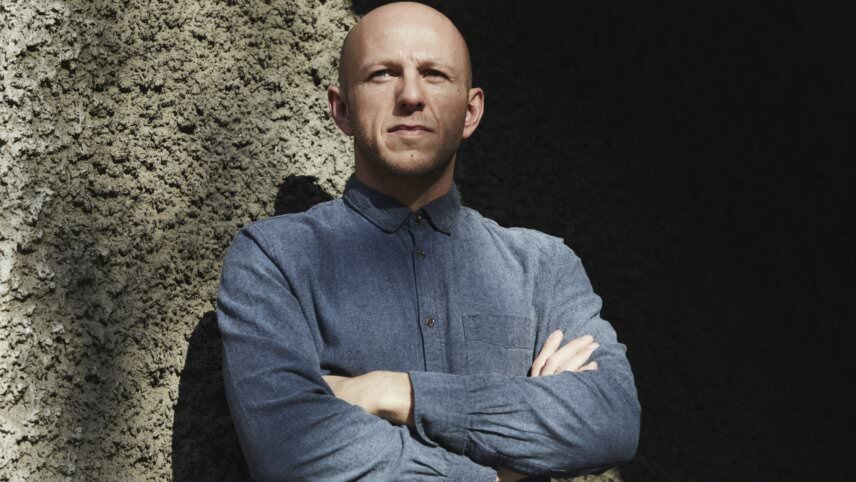
Attack: The question everyone asks when talking about Aslice is aren’t clubs already paying for the music used that night?
DVS1: The clubs are forced to pay performance collection societies, through their governments. It’s mandated that they have to pay.
The idea is that, when they do, the money should go back to the musicians played in the club.
But it doesn’t work as efficiently as that. We’re hoping to solve that problem.
Why is that?
Well, only 1% of clubs have the black box technology installed. Also, broadly speaking, DJs don’t submit playlists.
What tends to happen is that even when DJs do submit playlists, collection societies often do not accept them. Around 90% of playlists are denied. Typically it’s because metadata is missing. So, the money does not go to the rightsholders whose tracks were performed that night.
So where is that money going?
The way they do it now is, that many collection societies have a black box in a Top 40 club. They get those statistics.
Then they claim, based on those statistics, where money should be distributed. This is not taking into account, the thousands of underground producers who are being played in dance music clubs.
They validate their decision to give our money to those individuals being played in the Top 40 club playlists.
A bit like Spotify?
Spotify works the same way indeed.
What we've built, that nobody else has been able to duplicate, is the machine learning algorithm to read imperfect metadata, and return a perfect match.
And why is it only 1% of clubs have the technology?
Because clubs are forced, in most cases, to pay for the technology/box. Without the technology, it becomes the responsibility of the DJ to deliver the data.
The collection societies look at these clubs and say “we can put a black box in your club, and that way we can gather this data”. The collection society then charges tens of thousands of dollars to put this technology into their clubs.
Of course, the club asks legitimately why should they pay just so the society can do their job. Basically, there’s this constant back-and-forth fight of who should actually pay for installing this technology.
Do clubs push DJs to submit playlists?
A club isn’t going to chase every DJ for their playlist at the end of the night.
In Holland, Buma/Stemra, does a good job trying to do the right thing, but they still haven’t succeeded. At present, DJs submit playlists through an app , but they have to manually do so every single playlist. And imagine, when you do it and it doesn’t work you just get fed up and not bother.
With Aslice, you literally right-click in your DJ software, export a list and we do the rest.
Will Aslice supersede the current status quo?
We don’t want to take the place of PROs or supersede them. What we are, potentially, is something totally different.
We allow the DJ to give something back directly to the producers whose music they play. In the process, there’s a secondary benefit in that we’re creating a portal for the information that the collection society actually needs to do its job more efficiently.
Take Fabric, for example. They’ve shown significant interest in Aslice because Fabric remains keen to ensure their money (in performance fees) is going to those actually being played in the club. They can then submit that information to the PROs.
What are the benefits for a DJ using Aslice?
What will become more apparent, over time, is the social benefit of doing this good deed.
Imagine for every person’s track I play, that person is now also promoting me by saying, “I played their track”. Right? You could pay a PR company thousands of dollars and not get the same PR result that you could get from a $50 donation through Aslice.
For high earning DJs, there’s a tax benefit also. You can write off every one of these payments as an expense. For high earners, this can be particularly useful.
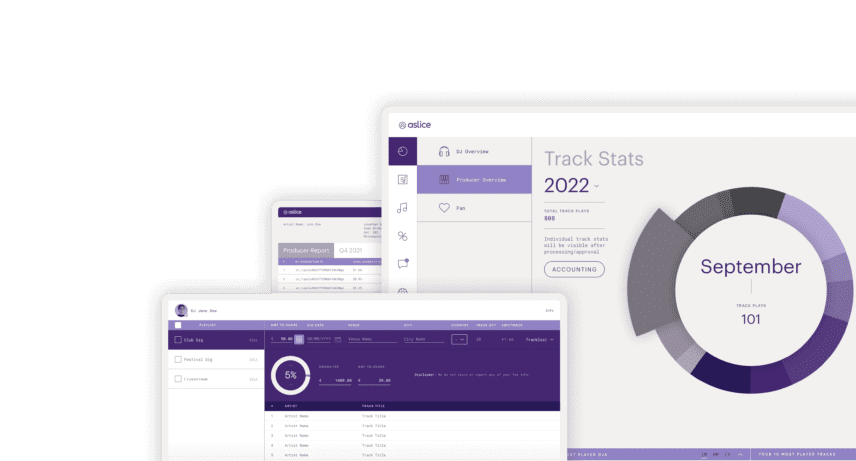
It’s voluntary and altruistic but with tonnes of social responsibility…?
Yes. 100%.
As it’s a new type of model there are a few steps in our user growth. Step one is that the first users are going to come into the system because they think it’s the right thing to do.
The second is that people will come in because they see the social benefits. I.E the promotional aspects.
Then there is the third group of people who will come in when they realize the personal and tax benefits, because sharing with producers costs DJs virtually nothing extra and reduces their tax burden.
You’re asking a fair bit. You’re asking people to be morally on point and socially responsible. We know most people aren’t…
That’s why I’m pointing out and being very blunt above, about the different reasons people join. Ultimately anyone’s involvement is positive and that’s what matters.
It might seem a lot, but when you see the full picture of the benefits, it’s worth it. Besides, we’re already in talks with major DJ software platforms about how to automate our process rather then requiring manual submissions to playlists.
Is there any concern that DJs will push their own tunes only and keep the money?
Well, this is the beauty of it! Our system cancels out any payments to yourself. If you do, it won’t work and the money goes to the others on the playlist.
Perfect! How do you calculate the percentages for different contributors?
Because we’re not a PRO, we do things differently. We pay based on the top line and viewable public artist listing. The percentages are paid based on the publicly available information in stores such as Beatport, Bandcamp, Traxsource, Juno, Soundcloud, and many more.
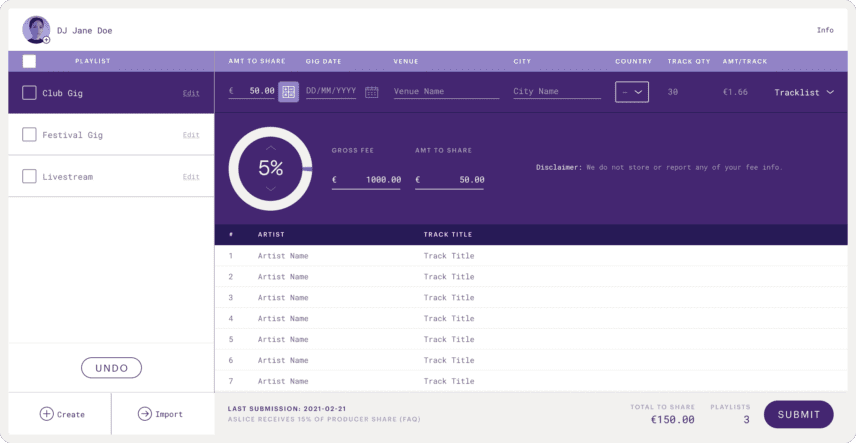
Does a producer need to do anything specific to make sure they get paid through Aslice?
People have asked us, “what happens to the money of people who haven’t come into your system yet, but have earned money?” Our answer is that, once you cross that payout threshold ($50), if you’re not in our system, we’ll find you. We’ll invite you to come in and claim your money.
If the music is unreleased, they should sign up to Aslice as a producer and get an Aslice ID. Everyone gets a unique ID, and we suggest that they embed that ID into the track title, or next to their artist name in their metadata, which are the two fields that we can guarantee we can identify music with.
And what about ghostwriters?
If you have ghostwritten a track and your name is not in the top line of the publicly available artist title or track credits, then you won’t receive any money from Aslice for this particular track.
Where you can benefit though is, if that music gets reported into our system, and then that music gets funnelled to the collection society, then your collection society deals kick in. That has nothing to do with us. That would be an addition to the Aslice earnings.
Tell me about the emails you send. I could receive a thousand emails to say that my track is being played in clubs that evening?
Yes exactly.
The way we built it is that, when the DJ submits the tracklist, all of the artists in the playlist get a notification email to say their track(s) have been played by whom and where.
Do you worry that perhaps the major labels are going to benefit more than the underground?
No, not necessarily. Actually, our first successful payouts to producers were all middle-tier, up-and-coming, and unknown artists. They are also the artists who are more likely to wish this to succeed.

Is that because of your background in dance music?
Sure, I add some legitimacy to this. I hope!
When Aslice gets to that level where Jay-Z is being reported, we can contact Jay-Z’s team and say “you’ve received $20,000 in our system last year. If you don’t need this money we would like to donate it on your behalf to our Aslice foundation”.
I’m sure Jay-Z, ever the businessman, will take that. Any arts education, music education services in particular that Aslice promotes?
The way we do charity is we have committee board members, called the “contribution committee”. They’re a beautiful, diverse group of people.
The Aslice users suggest the charities we donate to and the contribution committee vet the charities. Every user on Aslice then votes on where that money goes. In that sense, it’s completely transparent.
Parallel to that, the foundation is also applying for grants, separately from the money it gets from Aslice. We’re hoping we can raise 10 times what we get from Aslice to put to use in the foundation.
Which artists are already using Aslice?
Richie Hawtin has been one of the biggest supporters of putting his money where his mouth is. He has already uploaded his past playlists from 2021, and is continuing to upload every gig in 2022..
We also have DJs regularly uploading their tracklists such as myself, Rødhåd, dBridge, Gerd Janson, Surgeon, Marcel Dettmann, Amotik, Steffi, Van Anh, Léa Occhi – and the list grows every week.
Does the playlist have to be manually submitted?
Yes. Right now the barrier between us and any of the programs, obviously, is that you have to export the playlist, put it into our program and then fill in required info such as the country, the date and how much you want to give.
We are working on ways to automate this.
What we've built, that nobody else has been able to duplicate, is the machine learning algorithm to match imperfect metadata, and return a perfect match.
Let’s talk about KUVO. That was/is a solution of sorts?
Yes but it has limitations. KUVO’s still sending data but it’s only in a few clubs and requires a hardwired internet connection. It also requires perfect metadata.
What we’ve built, that nobody else has been able to duplicate, is the machine learning algorithm to match imperfect metadata, and return a perfect match.
The problem with KUVO is the moment you have one bit of imperfect data, those societies or programs would reject it. If it’s not perfectly tagged it can’t be used.
This is often a problem where people rip files from vinyl and change metadata etc.
And Aslice transcends that particular issue?
Yes. For instance, in all my music, I leave tags next to the file name or the track name.
I leave dubby, deep, hypnotic….whatever. I add extra words in there for my own nerdery to understand what I’m playing.
What our algorithm already does is it scrapes the public metadata and comes back with a perfect match of proper metadata and says, is this the track? And our system, with a high degree of certainty, can say yes, or a human can interface and say, yes.
So at that point, when I submit my tracks, I have all this extra tags, when they’re matched, it replaces it with the proper information. So instead of DVS1, Running, and next to Running, it says, ‘deep, hypnotic, minimal’, etc. It clears all that out and suggests, ‘DVS1, Running‘, which is the main title, the original mix.
For using Aslice, the audio doesn’t matter, we only require the text file of the playlist. It doesn’t matter what BPM it was played at, it doesn’t matter how I played it, it doesn’t matter if I had it mixed with three tracks, it doesn’t matter if it was played for 30 seconds or two minutes. If I report it, it’s in there.
So why has Aslice not been done previously?
The most common question that we see in social media posts is why should we exist? Then followed by “isn’t that the collection society’s job?”
Somebody always comes to our defence to say collection societies have had 40 years to do it and they haven’t.
We’re looking at it from a different place than we were 25, 30 years ago. We’re not limited to playing only vinyl. The reality is, now we play digital and that makes it easier to track.
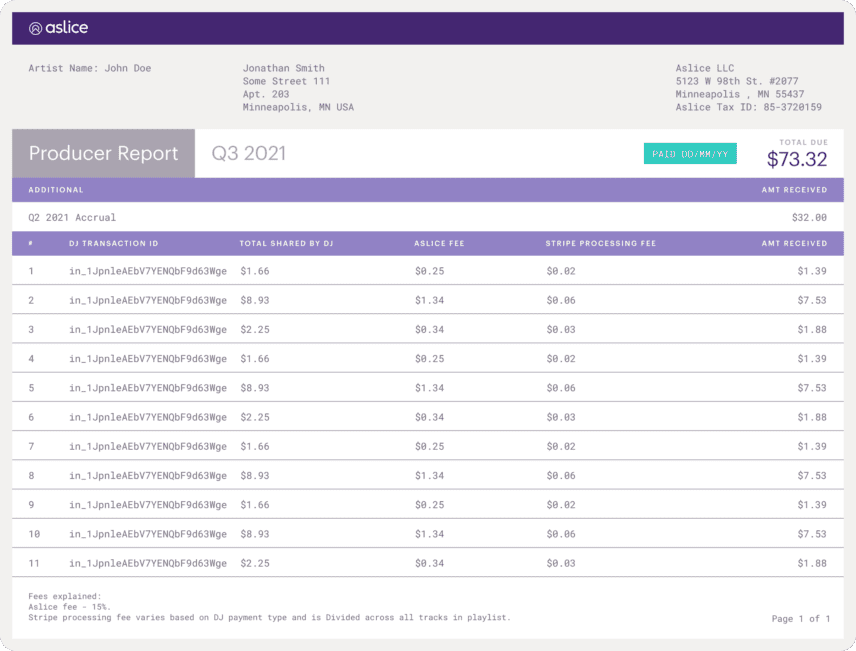
Do you worry people might add random tracks to help their mates with money?
Sure. If a hundred DJs submit a playlist, and two of them are going to add tracks just to pay out a friend should I stop the other 98 from being able to use a service that’s good for everyone?
You’re building a level of contingency into your business…
I think all of us have to accept there will always be bad players but those bad players should not deter the honest ones.
The reality is if you want to pay your friend a dollar and we take 15 cents to do it then so be it. The reality is the other 98 DJs who are using it honestly, are the ones I’m focused on.
How far can you retrospectively submit playlists?
DJs can submit playlists from far as back as they want at any time.
Despite all the conflict in the world, people are gradually becoming more socially conscious. It feels like this ‘might’ be the right time for something like Aslice.
Yes. There is a growing movement, not just in music, if you succeed at something, you give back something, and then you see that it comes back to you tenfold. And if that becomes normal, things like Aslice succeed, because it becomes second nature.
if you succeed at something, you give back something, and then you see that it comes back to you tenfold.
You’re paying it forward.
Yeah. You’re paying it forward, knowing selfishly or unselfishly, that it does come back to you.
I wouldn’t be doing my job if I didn’t ask…but are there any updates with your music?
Honestly, I wish there was! I missed my 25 year anniversary during the pandemic, so I didn’t have a chance to celebrate it, and now it’s not worth doing a celebration until I hit the 30 year anniversary!
Pics by Salar Kheradpejouh.
To attend International Music Summit visit the website for information and tickets.

